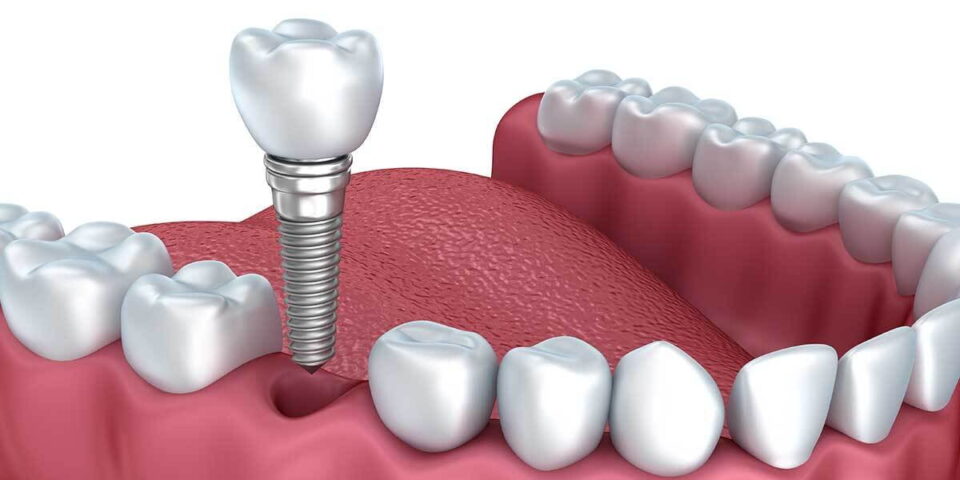The replacement of lost teeth and supporting tissues with one or more dental implants in Parkland, FL, is now a widely accepted procedure. They have the benefit of frequently replacing teeth with existing bone without requiring preparation of the remaining, healthy teeth. For this reason, single-tooth implants offer an alternative to traditional bridgework supported by teeth. The foundation of restorative dentistry’s implantology is the concept of osseointegration, which refers to the direct structural and functional bond—that is, the absence of any connective tissue—between a titanium implant that bears weight and the surrounding bone. In this blog post, we will study implantology and its uses.
A favorable host response, precise surgery and restoration, and thorough planning are all necessary for long-term osseointegration to be successful. If an implant is well integrated but placed incorrectly, it is of no use. However, though implants offer an aesthetically pleasing option to many patients, they are only indicated for some. A thorough case selection is done before starting the treatment
Implants tend to be used in one of three ways:
- For fixed restorations, which are either:
- Screw-retained.
- Cement-retained.
- To retain a removable prosthesis.
- For orthodontic anchorage purposes.
Why replace missing teeth?
It has been suggested that at least 20 teeth are necessary for proper function and appearance of the oral cavity. Many dentists support the shorter dental arch because it is more economical and practical. This is characterized as a reduced dentition, which includes premolar to premolar in both arches, with intact anterior teeth and missing posterior teeth. However, because each patient has different personal ideas, values, and tastes, there may be differences in the number of teeth needed to have a decent quality of life. It should be mentioned that the shortened dental arch notion is not widely recognized in many international nations.
Teeth are necessary for mastication, which is breaking down food in the mouth so that a balanced diet may provide enough nourishment. In addition, teeth support phonation, attractiveness, and self-worth. A thorough consultation that covers the patient’s expectations and reasons for requesting implant therapy is essential since what is acceptable to one patient might not be acceptable to another.
Most patients are generally willing to pay a higher price for implants than for traditional dentures and are able to bear the additional expense. Patients may find that the prospective benefits of implant therapy outweigh the initial expenses, which are greater than those of tooth-supported or traditional removable prostheses.

